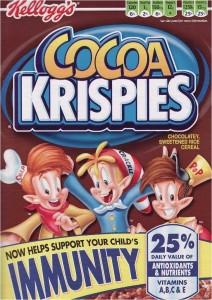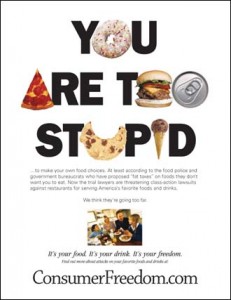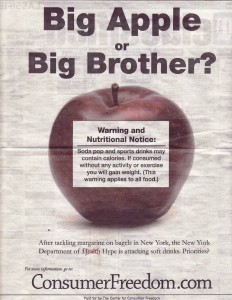Chocolate milk redux: Nutrifluff vs. Policy
First, the “Nutrifluff,” my term for research with results that are intriguing but of unknown clinical significance. I thank everyone who sent me links to the New York Times account of the new study linking chocolate milk to reduced inflammation. It quotes the lead author: “Since atherosclerosis is a low-grade inflammatory disease of the arteries, regular cocoa intake seems to prevent or reduce [it].” But the giveaway is the next magic words that cover all bases: “more studies needed.”
The study suggests – but in no way proves – that drinking chocolate milk reduces the risk of coronary artery disease. Inflammation is an intermediate marker of suggestive but unconfirmed clinical implications. More research is needed, indeed.
Next, policy. Recall the fuss over chocolate milk (see previous post on the topic)? Marlene Schwartz of the Rudd Center at Yale has posted an explanation of her views on the matter.
The “chocolate milk controversy” story this week is not about nutrition; it’s about marketing…They explain that “more than half of all flavored milk is sold in schools,” and “the importance of flavored milk goes beyond the school market because it is a key growth area for milk processors.”
They are trying to sell their product. There is nothing wrong with that as long as their marketing efforts are not misleading. Chocolate milk is not the nutritional equivalent of regular milk. It is significantly higher in calories, sugar (often high fructose corn syrup), sodium, and usually contains artificial colors and flavors.
In the promotional video on YouTube, expert dieticians acknowledged that chocolate milk has about 60 more calories per serving than regular milk, but then quickly added that “in the grand scheme of things, that’s nothing compared to the amount of nutrients they are going to be getting.”
That sounded really familiar.
“In the grand scheme of things, these calories don’t count” is exactly what we heard from David Mackay, the CEO of Kellogg in his defense of marketing his company’s high-sugar cereals: “Twelve grams of sugar is 50 calories. A presweetened cereal as part of a regular diet for kids is not a bad thing.”
50 calories here, 60 calories there, and pretty soon we are talking about real weight gain.
Our research has found that children will eat low-sugar cereals and drink white milk when these are the foods that are served. We also found that most children will also eat a piece of fruit if you prompt them to take it. School cafeterias are the perfect place to reinforce the nutrition lessons that begin at home and promote nutrient-dense foods.
If chocolate milk were the only treat children were exposed to in schools, it would not be nearly as much of a problem. But it is not. In many schools, kids are offered sweet treats all day long (birthday celebrations, rewards from teachers, etc) or exposed to those readily available from vending machines. So sweet foods have become the norm. Norms are hard to change, but let’s at least not make them worse.






